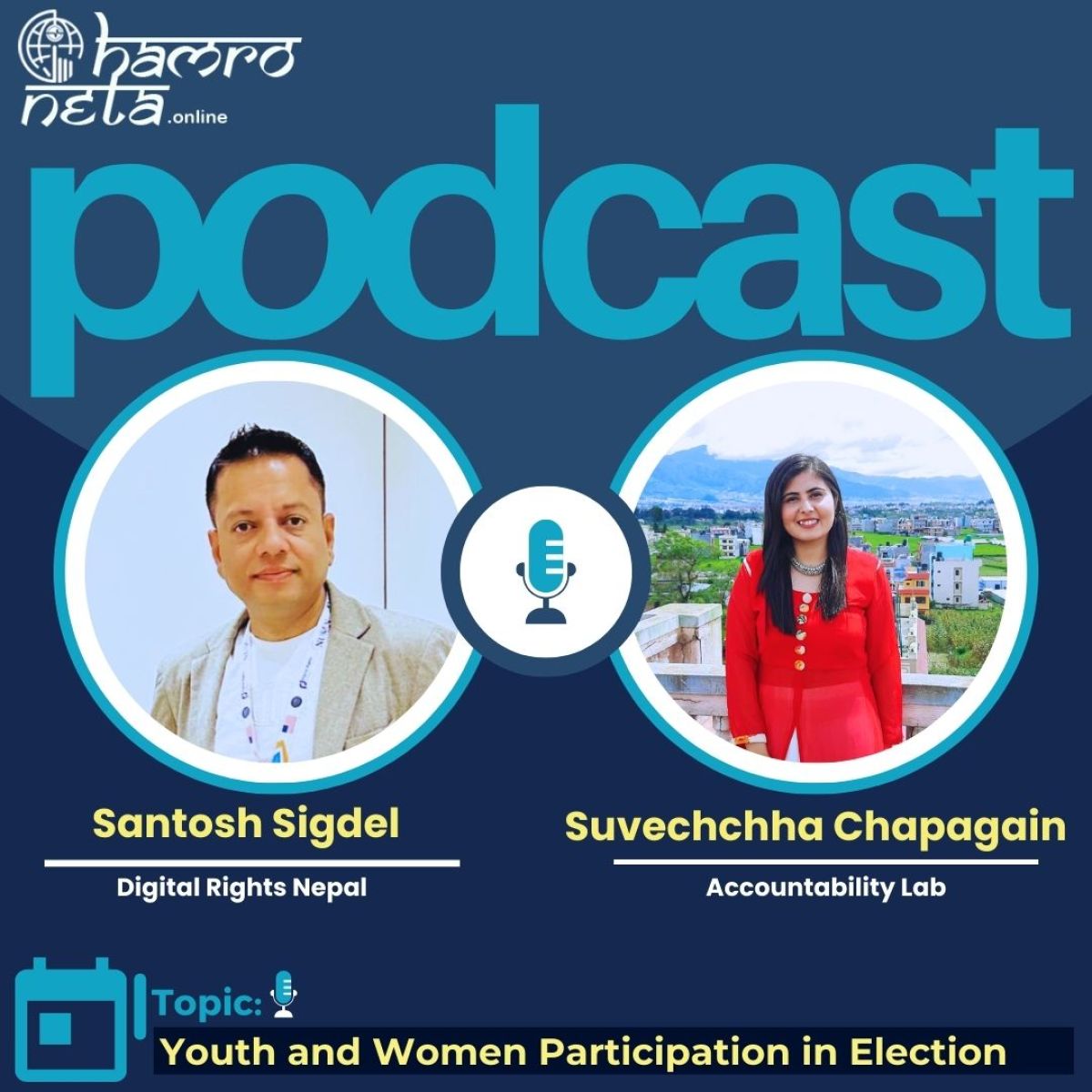
The podcast episode featuring host Santosh Sigdel and guest Suvechhya Chapagain explores the crucial topic of Youth and Women's Participation in Elections. The discussion aims to inspire young individuals and women to engage actively in the electoral process, emphasizing the importance of their voices and votes in shaping the future.
Youth and women’s political involvement in Nepal has seen gradual improvement. Legal provisions such as a mandated 33% representation for women in parliament and significant representation at provincial (33%) and local levels (41%) demonstrate quantitative progress. However, qualitative improvements remain limited, with youth largely absent from mainstream leadership roles. Despite Nepal's youth comprising 40% of the population, barriers such as delayed political transitions and restrictive party norms hinder their leadership opportunities.
Political party structures often require long-term membership (15 years) before assuming key leadership roles, deterring many young aspirants. Nepotism and the financial burden of running for office further limit youth involvement. Additionally, student politics, traditionally a gateway for youth participation, lacks proper guidelines and is often marred by delayed transitions and reduced popularity.
Economic instability and limited opportunities have led to a surge in youth migration. Each year, 7–8 lakh individuals leave Nepal, driven by a sense of hopelessness and mistrust in current political leadership. This migration creates a significant barrier to political participation, as many eligible voters are overseas and unable to vote due to the lack of mechanisms like online or migrant voting.
Women face unique challenges due to gender norms and marital migration, making it difficult to establish a political base in new locations. While legal provisions aim to ensure representation, cultural and systemic barriers still hinder qualitative participation. Women are often relegated to secondary roles, such as deputy positions, while men dominate leadership.
Social media has become a powerful tool for youth and women to express their views and amplify their voices. However, it comes with risks of misinformation and disinformation. Mainstream media, though more reliable, is often compromised by its nexus with political and business houses, failing to challenge the status quo effectively.
To enhance youth and women’s participation in politics, several changes are necessary:
The podcast concludes with a call for redefining benchmarks for women’s political participation based on Nepal’s diversity and demographics. Rather than imitating other nations, Nepal must craft a vision tailored to its unique context. Youth and women hold the key to Nepal’s future, and their meaningful participation can redefine the political landscape for generations to come.
This discussion reminds us of the untapped potential within Nepal’s youth and women and the urgency of creating an inclusive political environment.
This blog post is based on a podcast episode featuring discussions between Suvechchha Chapagain and Santosh Sigdel on "Youth and Women's participation in Election". To watch the full episode, follow the link: https://youtu.be/tWCTEjRA0sE?feature=shared
Comments